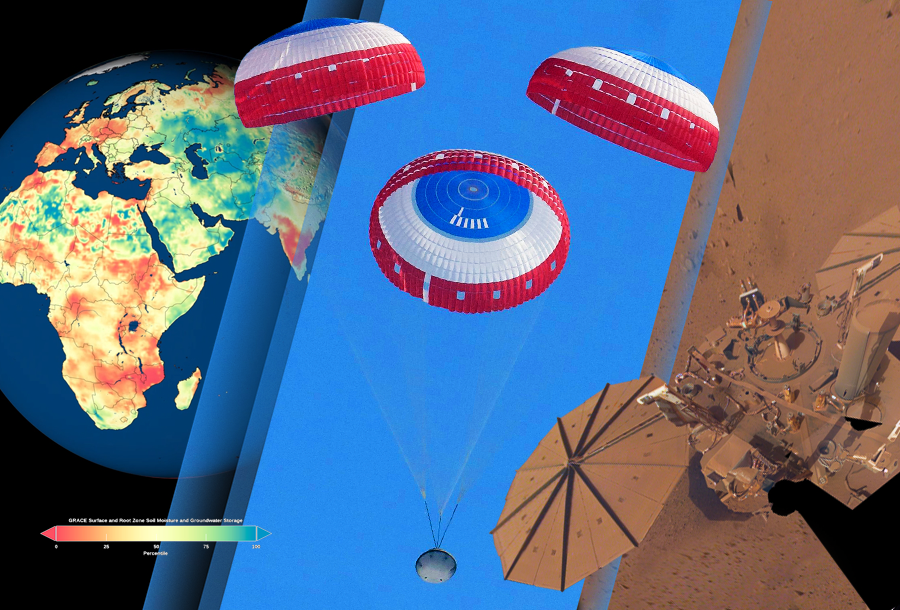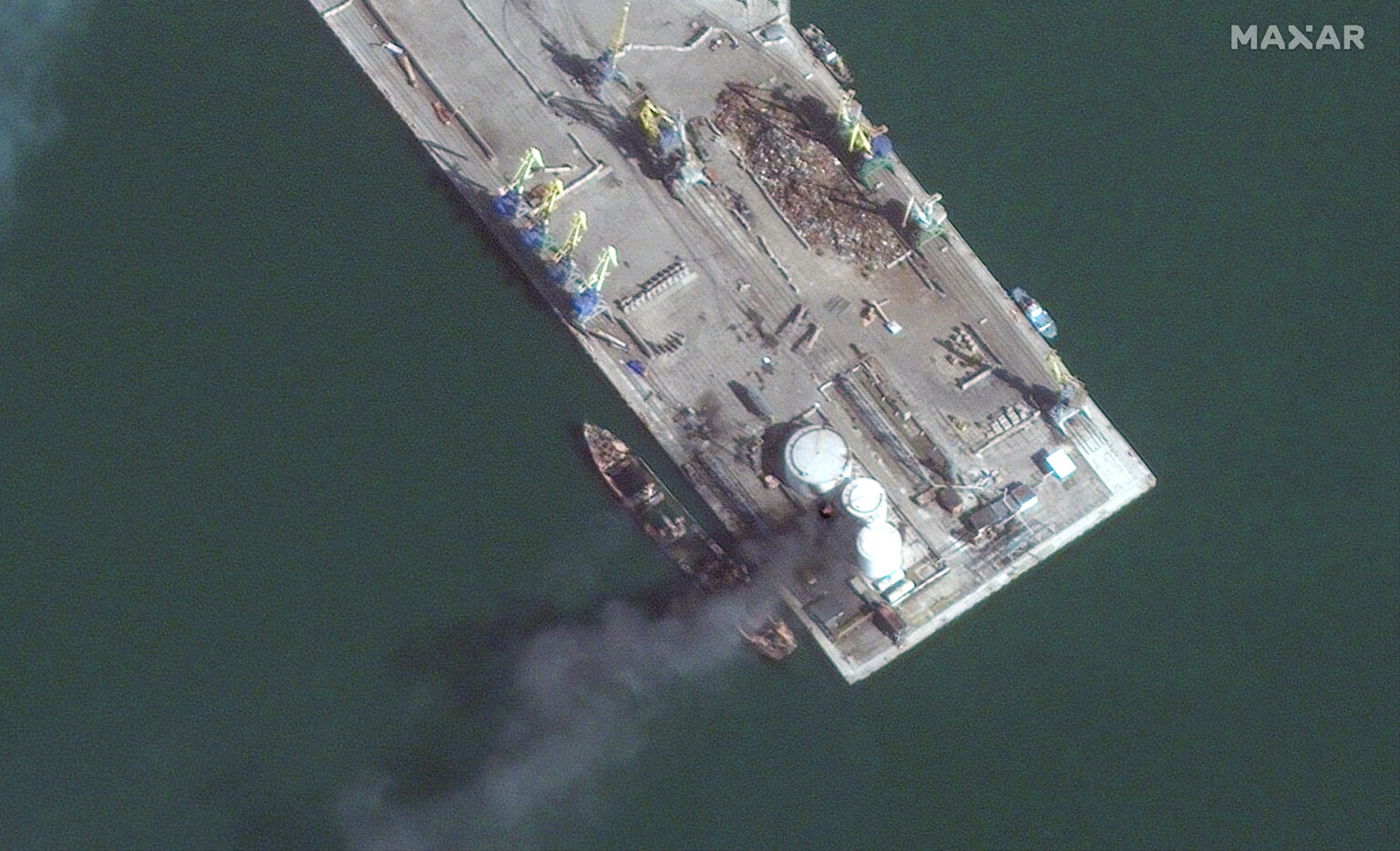Selection of space news for breakfast: Starliner has landed successfully. Mars turned out to be 100 times “quieter” than Earth, and InSight took the “last selfie”.

Starliner returned to Earth
The CST-100 Starliner spacecraft undocked from the ISS and returned to Earth. Its return capsule made a successful landing on the territory of the White Sands Space Harbor in New Mexico. The CST-100 Starliner was launched on May 19. During the launch of the spacecraft into orbit, there were some problems — 2 of the 12 engines were prematurely turned off. However, this did not prevent it from performing the necessary maneuver and docking with the ISS. The spacecraft stayed in the orbital complex for five days, after which it undocked from the station and began returning to Earth.
ESA does not anticipate Russian withdrawal from ISS
The European Space Agency does not expect Russia to terminate the joint operation of the International Space Station (ISS) with the West, ESA Director-General Josef Aschbacher told. The ISS, the largest artificial object in space, has been continuously occupied since November 2000, operated by a U.S.-Russian-led international consortium of five space agencies from 15 countries.
NASA’s Mars InSight lander snaps dusty ‘final selfie’ as power dwindles
NASA’s InSight lander is completely caked with a thick layer of Martian dust in its latest selfie, which the agency says will likely be the last of the mission. The solar-powered llander is only working at about one-tenth of its landing capacity of 5,000 watt-hours, the agency said in a press conference. The new picture shows just how much regolith has piled up in the last few years on the surface of the module.
Market News

BlackSky, Maxar, Planet win 10-year NRO contracts for satellite imagery
The National Reconnaissance Office announced it awarded BlackSky, Maxar Technologies and Planet Labs 10-year contracts to provide satellite imagery for U.S. intelligence, defense and federal civil agencies. The NRO called these awards the agency’s “largest-ever commercial imagery contracting effort“. Maxar’s deal is worth more than $3.2 billion over the decade. BlackSky’s contract has options worth up to $1 billion. Planet Labs has not yet disclosed the value of its contract.
Virgin Orbit expects first U.K. launch in August
Virgin Orbit expects to perform its first launch from England in late August, pending award of a British launch license, a company executive said. It will come after a launch from Mojave Air and Space Port in California called “Straight Up” scheduled for no earlier than June 29 that will carry seven U.S. government payloads.
Gogo’s OneWeb partnership could face Starlink in business aviation market
Gogo is planning to use OneWeb satellites in a partnership that could see it take on Starlink in an emerging business aviation market for low Earth orbit services. Gogo announced plans to use OneWeb’s LEO network to connect business jets that are currently too small to use commercial high-speed satellite broadband solutions.
Asteroid-mining startup AstroForge raises $13 million, books launch for test mission
The California-based startup, which was founded in January 2022, came out of stealth mode, announcing that it aims to become the first-ever viable asteroid mining company. In its first few months of existence, AstroForge has raised $13 million in seed funding, developed and lab-tested new technology for processing asteroid material and booked a ride on a SpaceX Falcon 9 rocket to test that tech out in orbit.
SpaceX just launched the world’s first ‘crypto satellite’
The world’s first “crypto satellite” is now in orbit. SpaceX launched its fifth smallsat rideshare mission, Transporter-5, May 25. Notably, the rideshare mission launched the world’s first “crypto satellite”, an interesting milestone for a company whose CEO Elon Musk is firmly rooted in crypto culture — only this week, news emerged that a deepfake of Musk is being used to scam crypto holders. The satellite, called ‘Crypto-1’, was designed by U.S. satellite startup Cryptosat to lay the foundations for secure cryptography related to the blockchain in space, according to a report from Forbes India.
Interesting
Sounds of the Martian wind turned out very diverse
The Perseverance rover recorded the wind and other sounds of Mars. Scientists have found that they are more diverse than one might have hoped. Acoustic conditions on the planet vary depending on the time of year. From a year of recordings of Martian sounds, scientists have made a five-hour playlist. It turned out that most of the time the red planet is quiet. Researchers have long suspected that it is always quiet there. But it turned out that the sounds on Mars are 20 decibels quieter than on Earth with the same sources. This means that the sound of a stone falling there is about 100 times quieter than ours.
Ashes of 47 people to be buried in space
Space company Celestis is getting ready to shoot the cremated remains of 47 individuals from five countries into orbit this week. The company is attaching the remains to a telecommunications satellite that’ll launch from Florida’s Space Coast, which effectively means they’ll be orbiting the Earth for another decade. In fact, Celestis will provide live GPS data of where the remains are at any point in time for their loved ones to track.
New discovery about distant galaxies: Stars are heavier than we thought
A team of University of Copenhagen astrophysicists has arrived at a major result regarding star populations beyond the Milky Way. The result could change our understanding of a wide range of astronomical phenomena, including the formation of black holes, supernovae and why galaxies die.
What can satellites reveal about climate tipping points?
The effects of our warming climate are seen across a multitude of measures, usually as incremental changes: more frequent extreme weather, heatwaves, droughts and wildfires. The cumulative impact of these changes, however, can cause fundamental parts of the Earth system to change more quickly and drastically. These ‘tipping points’ are thresholds where a tiny change pushes the system into an entirely new state. It is an area needing urgent research to develop predictions of when and where these abrupt changes can occur and the risk that they pose to communities and ecosystems worldwide.
Follow us on Twitter to get the most interesting space news in time
https://twitter.com/ust_magazine

